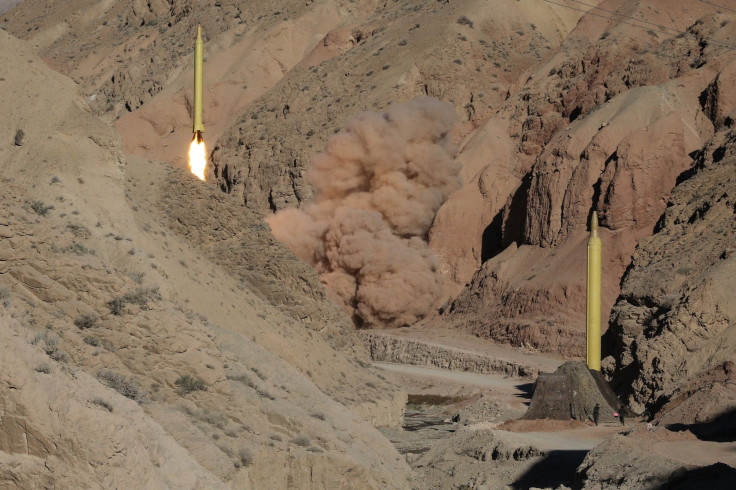Iran’s Foreign Minister Denies Missiles Violate UN Resolution, Says They Are For Self Defense

Iran’s foreign ministry said Tuesday that the country’s ballistic missiles are just for self-defense and that the tests conducted last week do not violate a United Nations resolution or the nuclear deal signed with world powers. The latest tests from Iran has drawn criticism from international powers and led to a 15-member United Nations Security Council meeting on Monday.
“These missiles do not even fall within the purview of 2231 [U.N. resolution] and they are not illegal,” Iranian Foreign Minister Mohammad Javad Zarif said while speaking in Australia, according to Reuters, adding: “Iran will never use any means to attack any country, including our missiles. These are only for our defense. I challenge those who are complaining about Iran's missile program ... to make the same statement.”
Zarif met with his Australian counterpart Julie Bishop on Tuesday and had a detailed conversation about the legal and technical issues regarding the missile test. Zarif said that the latest tests did not violate resolution 2231 but may have violated resolution 1929 that it superseded. A report by the Associated Press (AP) said that the resolution 1929 used a different language.
Resolution 2231, which was brought into effect in January, used the term “calls upon” Iran to avoid activity for ballistic missiles. While the U.S. and Israel claim that Iran is banned from testing ballistic missiles, Russia and Iran claim that the term “calls upon” is not legally binding.
“First of all, it doesn't use obligatory terms that are used in the Security Council, so Iran is not obliged by 2231 — it calls upon Iran,” Zarif, said, according to AP, adding: “Secondly, it creates a narrower definition of the missiles. That is, missiles that are designed to be capable — not capable — designed to be capable of carrying nuclear war heads.”
Russian Ambassador Vitaly Churkin had said Monday, according to the Wall Street Journal, “A call is different from a ban so legally you cannot violate a call, you can comply with a call or you can ignore the call.”
Bishop, however, did not clarify her opinion on if the tests violated the resolution. “Having heard the foreign minister's explanation, it is Australia's position that should the U.N. Security Council wish to investigate this matter, then that would be the proper legal process for it to do so,” Bishop said, according to AP.
On Monday, the United States vowed to continue its efforts to get the U.N. Security Council to take action over the missile test and also accused Russia of trying to find reasons so that it does not respond to claims that the U.N. resolution was violated, Reuters reported. The comment about Russia was made by U.S. Ambassador Samantha Power and was a reference to Churkin, who said that Russia did not view the tests as a violation of the resolution.
The Security Council on Monday said, according to the Journal, that the tests disturbed the “peaceful environment” and the trust that the world powers developed with Tehran following the nuclear deal signed last year. But it added that the council will need to gather more technical information to rule whether the test was a violation of the resolution or not.
Brigadier General Amir Ali Hajizadeh, a senior commander for Iran’s Revolutionary Guards Corps (IRGC), said after the tests that the missiles were developed to target Israel and added that the “missile program will not stop under any circumstances... The IRGC has never accepted the U.N. Security Council resolutions on Iran's missile work ... we are always ready to defend the country against any aggressor. Iran will not turn into Yemen, Iraq or Syria.”
© Copyright IBTimes 2024. All rights reserved.





















